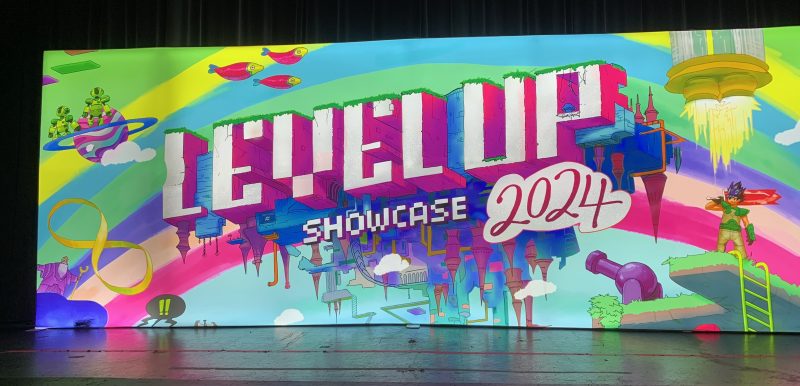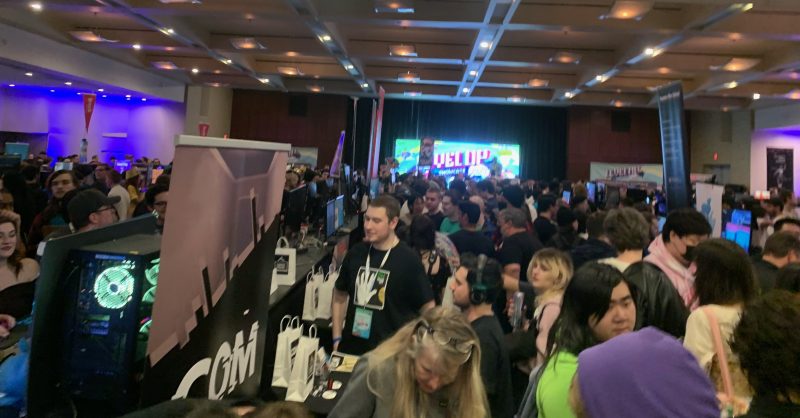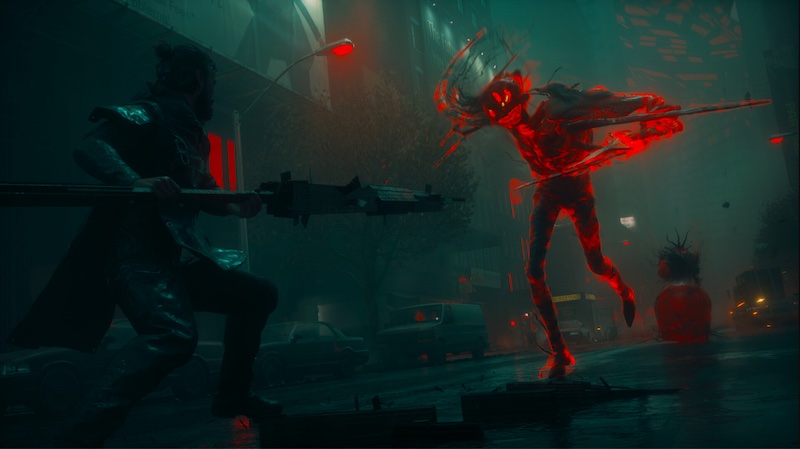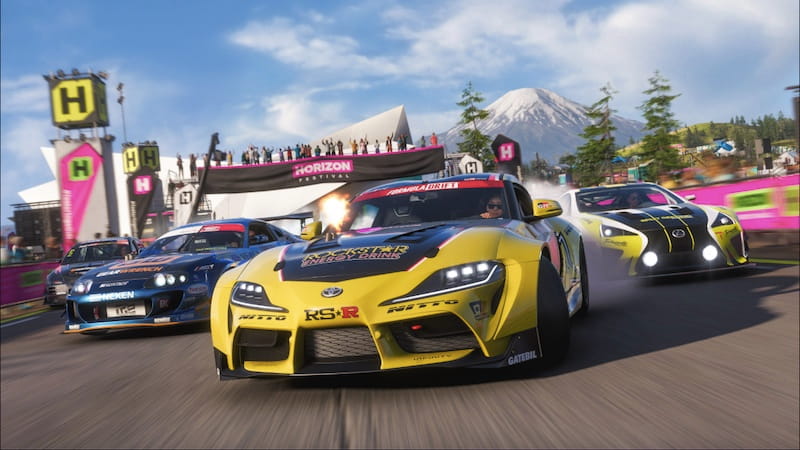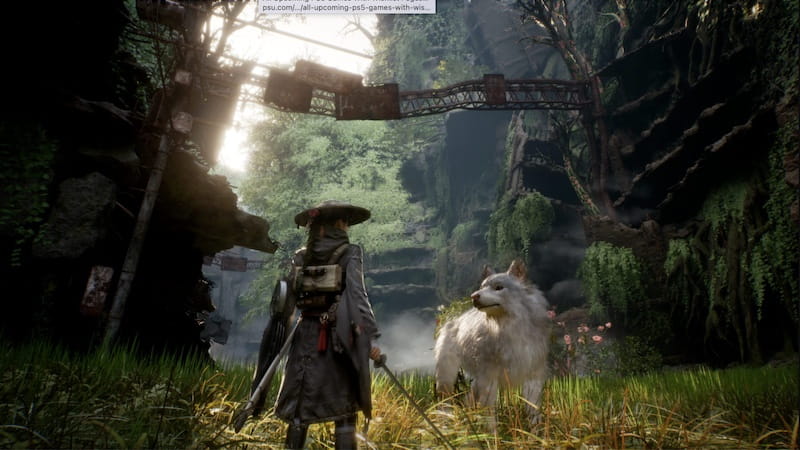Level-Up Showcase 2024: The Kids Want To Make Games, And They Don’t Want Your Toxicity
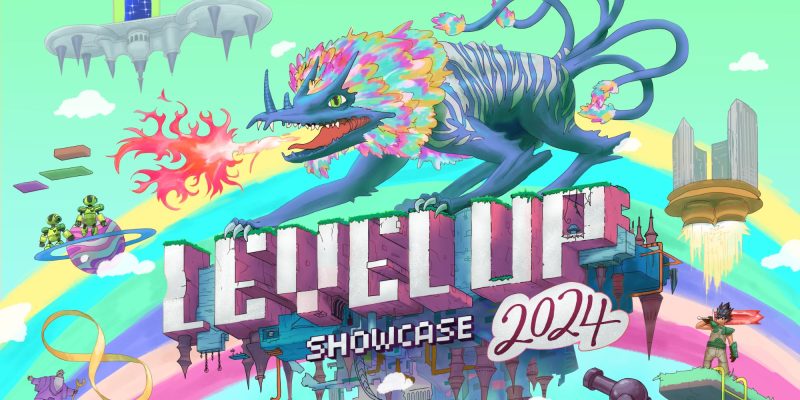
On Friday, April 19, 2024, I packed myself into the north-side building of Toronto’s Westin Harbour Castle Hotel along with hundreds of game design and development students, their teachers and professors, and plenty of games industry professionals keeping an eye on the incoming talent.
The reason for the gathering was Level-Up Showcase, a 13-year long running annual event hosted in Toronto which brings together students from multiple universities and colleges across Ontario, giving students a chance to show off their capstone projects to be judged by game devs already in the industry.
For more than a decade now, Level-Up has been a key event for Onatrio’s game design students, some of whom have gone on from Level-Up and their school programs to create BAFTA-winning games.
I went to my first Level-Up Showcase this year for PSU, where I got a chance to speak to the showcase’s founders, a whole bunch of students from a variety of schools, and of course, play a lot of different games.
If you want a quick summary of my findings, my biggest takeaway was this: that the kids want to make video games, for all the reasons anyone may have who wants to express themselves by making something, but they don’t want any of the toxicity that still permeates the games industry.
Oh and of course, they’d also like a job.
Level-Up Showcase 2024: The Kids Want To Make Games, And They Don’t Want Your Toxicity
Level-Up Reaches Level 13
The Level-Up Showcase has been around now for 13 years, and in that time it’s grown from a small initiative started between two professors and their game design students, into an annual event where more than 800 students from 23 schools get together each year.
Co-founded by OCAD’s Emma Westcott and University of Toronto’s Steve Engels, the showcase began partly because Westcott and Engels saw each others students could benefit from collaborating together.
As Emma told me when I was speaking to them about the showcase, what she teaches at OCAD is much more about creating art with digital tools, more than it is teaching kids how to make video games. While over at UofT, Engel’s students are part of the school’s Computer Science program, and as a result all have more of a programming/computer science specialty.
Putting the two groups together made sense for game design, and not only has Level-Up grown with the amount of schools that are involved, it has plenty of big industry players at the table helping to make the event happen every year.
AMD, Ubisoft, Zynga, and Ontario Creates are the four biggest event sponsors, while the event is organized now between efforts from UofT, OCAD, Brock University and Algonquin College.
Right when I got to the showcase, one of the main organizers from Brock, professor Jeremy Leipert showed me to the main showcase floor, as I asked him about what he hopes his students get out of participating in Level-Up.
Unsurprisingly for a teacher, his answer was the experience of showing their work in this setting. Having people, in and outside the industry come and play something they made, and get that kind of invaluable feedback from a live audience.
I’ve always found that the best teachers just want their students to be open to every learning experience, and this answer already lined up in my head that Leipert’s students were lucky to have him. It made it all the less surprising when towards the end of the show, when he appeared on stage to offer words of thanks as part of the showcase’s closing activities, a group who could’ve only been made of his students cheered his name when he took the stage.
Back to first getting to the show floor, I was taken aback just by how packed it was. I thought I had gotten their early, though in reality these students had been downtown since the beginning of the day to setup, and be ready for the official judging which took place a few short hours prior to my little-before-4pm arrival.
Leipert introduced me to Westcott, and from Emma I started to learn much more about the showcase, and of course what she hopes students get out of the event, especially from her perspective as a co-founder.
For Westcott, she wants every student who participates in Level-Up to get more than just the experience of putting your game in front of a live audience. She hopes students find a circle of creators they want to work with, other like-minded individuals where they can all help each other grow.
Most importantly she hopes that students can “understand the measure of their own achievements,” which is to say that making games is difficult work, and every student showing something off should be proud of their accomplishment in being at Level-Up.
And Level-Up is definitely the place to do that. The students already present themselves as a studio, not just a student group name and their school, when talking about their projects.
There were also so many people that moving around at the event was a challenge, even right when I got there. By the end of the night, getting from one side of the show floor to the next was practically a 10-minute affair.
Which is also what gave the event so much energy. It was palpable and in the air, piercing all the heat coming off the many hard-working PCs and the developers standing next to them explaining their game to the next onlooker.
As someone who was born and raised in Toronto, it was really a joy to see an event like this that brings together the next generation of game developers across Ontario all together in my own hometown. The only thing I was upset about frankly was being 13 years late to the party.
Everyone’s Got Concerns
Despite the energetic young developers and their games (which I’ll get to soon enough), a cloud hung over the event, one full of concerns.
Of course any student in their graduating year will have concerns about what’s to come next, but you’ve got to admit that game development students have a more unique relationship with those concerns.
For the last two years, everything they’ve heard about the industry they hope to work in has been dire. In between going to classes that they hope will prepare themselves for an industry they already know is tough to crack, more news about how much more tough to crack it would be was pouring out.
Even just saying that they have concerns, is practically underselling it. Right when I spoke to Leipert on my way in, he admitted he had concerns for his students entering the workforce. Westcott said the same, though tagged on that she’s always telling students to look for ways to use their game dev skills and know-how in other industries.
And it should go without saying that every student I spoke to also expressed they’re concerned about moving into the game dev workforce.
But interestingly, while there were some students I spoke to who mentioned the layoffs first when I asked about their games industry concerns, most of them in fact mentioned concerns regarding toxic studio cultures before voicing concerns about the job market.
Yes, the amount of layoffs in the last couple of years has been exorbitant, but these are all quite literally the new kids on the block. They don’t have the framing of what it was like before this beyond what they might’ve read about growing up.
What they do understand is that layoffs happen in every industry, and believe that while it might be a particularly tough time in games at the moment, it won’t last forever – and they’re right to have that mindset.
It’s the crunch, burnout, and toxic studio culture stories they hear about from company’s across the industry that they find abnormal. Those are the things these young developers reject wholeheartedly, the things they don’t envision when they think about working in games.
I asked every student I spoke to what they would say their dream studio to work at would be and what their dream project would be. While dream projects were quite varied based on personal tastes, when it came to a dream studio, I was inundated with answers of “Bungie,” “Bethesda,” “Naughty Dog,” “343,” or other big teams that handle some of gaming’s biggest franchises.
The common answer was instead to find a AA-level or smaller studio. Somewhere they didn’t feel like a small cog in a giant machine, but a very big cog in a small machine. A place where they could feel their impact, have more creative input, and most importantly, try to have some semblance of a proper work-life balance.
I had one student tell me that while of course it would be great to say they worked at a big studio (they specifically mentioned 343 due to their love of Halo), what they want more is just make something they’re proud to put their name next to. To be able to say “I helped make that. I was a part of that.”
And these students are already making things to be proud of. How do I know? Because I got to play a bunch of those games.
Games, More Games, And Some More Games
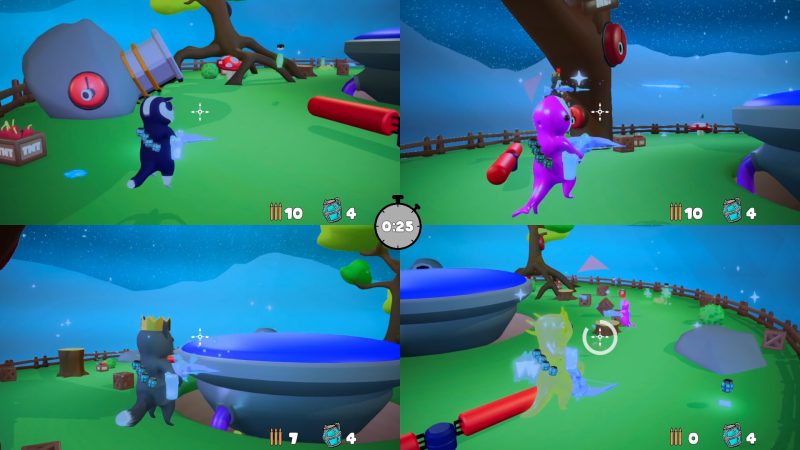
So while I feel like I got to play a lot of games at Level-Up, at the same time I didn’t get to play a lot of games. There were just way too many for me to play all of them, and talk to students, professors, and game developers from the various partnering studios.
That said, I do have a few games I’d like to highlight from what I did get the chance to play. Beginning with Electrifye, from the team at Digital Firewood. To sum it up, Electrifye is kind of a Celeste clone, but I mean that in the best way, because even in level the team was demoing (the only level they had finished) the platforming already felt tight and fun to execute.
Digital Firewood actually had two games at the showcase, the other being Breach The Abyss, which the team says is “a top-down wave-based shooter with roguelite elements.”
I spent a fair bit of time at the Electrifye table due to my love of Celeste and anything that feels like it so I didn’t get to play Breach The Abyss, but out of the two it was Breach The Abyss that took home two awards from the showcase, 3rd place for Artistic Achievement and 2nd place for Best Overall Game.
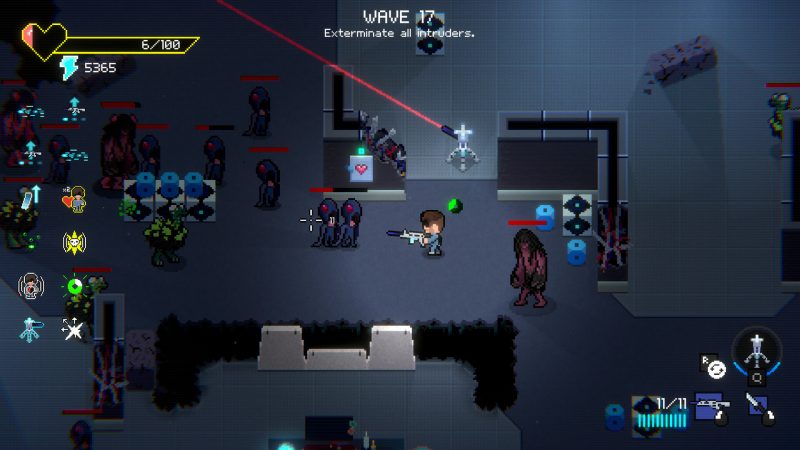
Speaking of top-down games, another highlight that I actually got the chance to play was Fleshinsane, something that immediately caught my eye with its dark aesthetic and fast-looking combat. The line for this game was ‘insane’ for most of the showcase, so I was happy to catch a break in the action and get the controller in my hands.
Out of everything I did play, Fleshinsane was one of the games that felt like it was ready to be just be out in the world, on all platforms for people to buy.
The very first game I got to play at the showcase was a multiplayer game called Unnatural Selection, a party game where each round the weapon you and your opponents use is randomized, creating consistent chaos each round.
There’s also a healthy portion of environmental hazards that’ll knock you off the map, and it all works to fit the theme of ‘unnaturally’ losing the round.
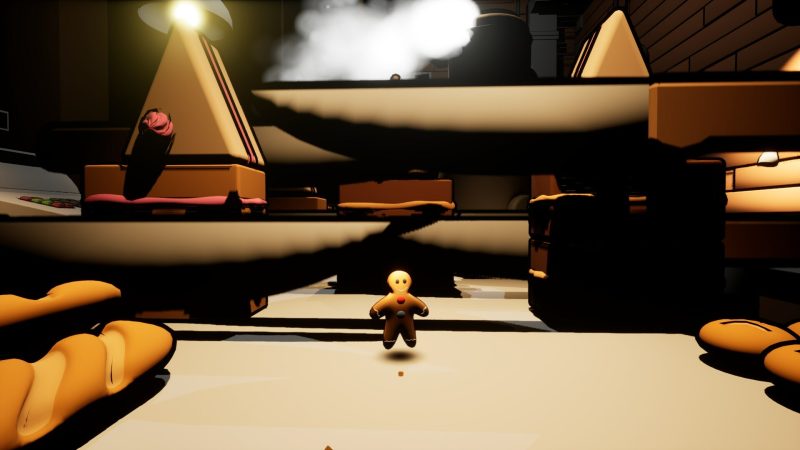
After the showcase, the team of Brock students behind Unnatural Selection who call themselves Goopi Inc. were kind enough to share some of their reflections from participating in the showcase.
“We felt like Level-Up went extremely well for us! Overall, it seemed like lots of people enjoyed our game and we had a lot of fun at the event,” the team told me over email.
“It was really nice to see all the interest, and it was super awesome to see all the crowns walking around the showcase. It felt like all of our work had finally paid off, which was really validating considering how much we pushed to get it to that point.” (The ‘crowns’ mentioned were paper crowns the Goopi Inc team gave out to anyone who won their match of Unnatual Selection).
Another game that like Electrifye, was right up my alley in terms of my love for platformers I got to play was Unbreaded, a 3D platformer where you play as a small gingerbread person, battling muffins, loaves of bread and dodging hot stove tops on your path to freedom.
Full disclosure, I had previously met the lead developer on Unbreaded, Dor Zairi, at a separate Toronto-based event, so it was personally nice to see the game get more attention at Level-Up. Afterwards, Zairi also shared with me his thoughts on the showcase.
“Participating in this year’s Level-Up Showcase with our Unbreaded project was a pleasure. The event offered an incredible platform not just for us but also for all the talented student developers to display their hard work and creativity. Participating in the fourth round of judging and coming close to winning was an exhilarating experience for the entire Unbreaded team.
One of the most rewarding aspects of the showcase was witnessing attendees’ reactions to playing Unbreaded. It’s fulfilling to watch people enjoy the game you’ve poured your heart into. Moments like these remind us why we love game development—it’s about bringing joy and new experiences to others.
Even though we didn’t take the top prize, I believe we achieved something equally valuable. Our greatest rewards were the joy and excitement Unbreaded brought to players and the experience we gained from developing it and receiving live feedback. This event has not only helped us grow as developers but has also deepened our passion for game development.”
I also got to try a game called Automaton, which was described to me as a mix between Enter The Gungeon and Magicka, which had huge build-potential for its rougelike structure with how you could mix and match elements to create different playstyles.
Ghost Roast Games’ showcase entry Baristapocalypse might draw you in thinking it’ll be a cozy sci-fi barista simulator, though impatient customers and the responsibilities of running your own space coffee shop make it feel more akin to Overcooked! within minutes.
As someone who is terrible at Overcooked!, I wasn’t surprised to find out I was also bad at Baristapocalypse, but just like when I play Overcooked!, I still had a great time.
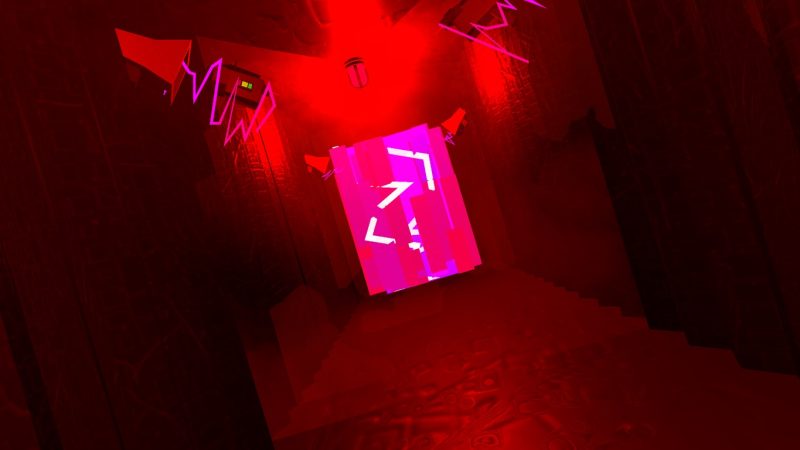
However one game that I unfortunately didn’t get a chance to play due to the VR headset the developer brought running out of battery and needing a charge was Dream Factory.
A solo project from OCAD student Luke D’Alfonsi, Dream Factory is a mixed-reality VR game, or “cross-reality,” as D’Alfonsi calls it. Dream Factory “transports the player, along with their real surroundings, into a cryptic, enigmatic world where they are forced to work shifts at the Dream Factory.”
It was the game that in many ways piqued my interest more than others, with how it intentionally brought both the virtual and real realities together, and how it utilized the Meta Quest 3 headset and its pass-through capabilities.
As much as I’m the type to lean more into wanting to speak about the art and cultural impact of games over the technological implications, I loved that Dream Factory was a project that was immediately trying to blend more recent tech into game creation.
The Kids Are Alright With Making Games
When I was on my way to Level-Up Showcase, I went in thinking it would be a nice, quaint time where I played some games, spoke to a bunch of people who all loved games, and be on my way home before dark.
Cut to me getting home near midnight because the show didn’t end until 10pm, and I hadn’t stopped talking to students about their projects and their games industry hopes and dreams.
All of which kept consistent with what I’ve already talked about – that the kids just want to make games they think are cool, and hope others think they’re cool too.
If you’ve been thinking about the future of the games industry with despair, attending Level-Up Showcase would be my recommended prescription.
Having such immense talent on display, all in one giant room no less, filled me with excitement for what’s to come from this new generation of developers.
The only thing I’m more excited for, beyond seeing where all these young developers go in their careers, is Level-Up Showcase 2025, where I’m sure I’ll see even more talented young developers, as the show continues to grow.
Thank you to Level-Up Showcase and its organizers for having me, and to all the students and faculty who spoke to me for this piece.
Feature image courtesy of Level-Up Showcase socials.

